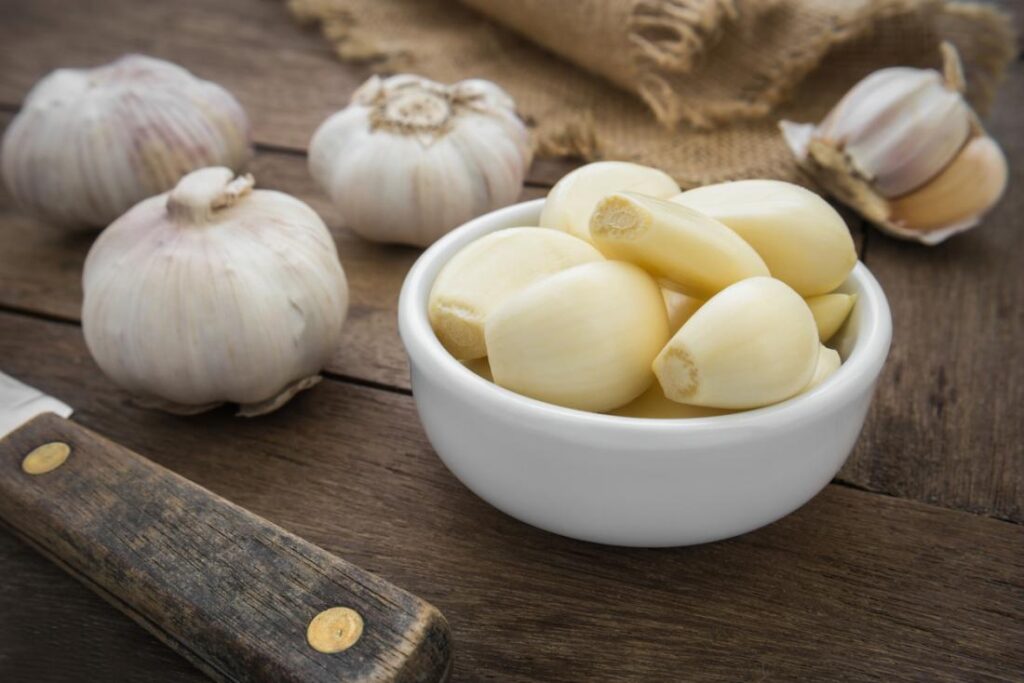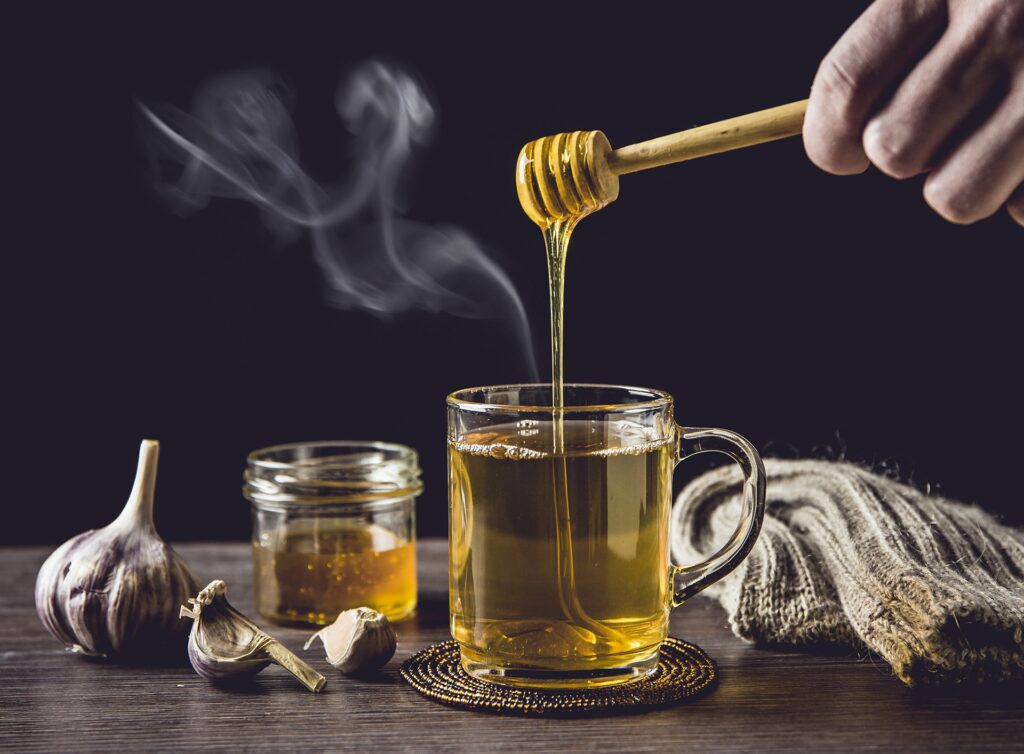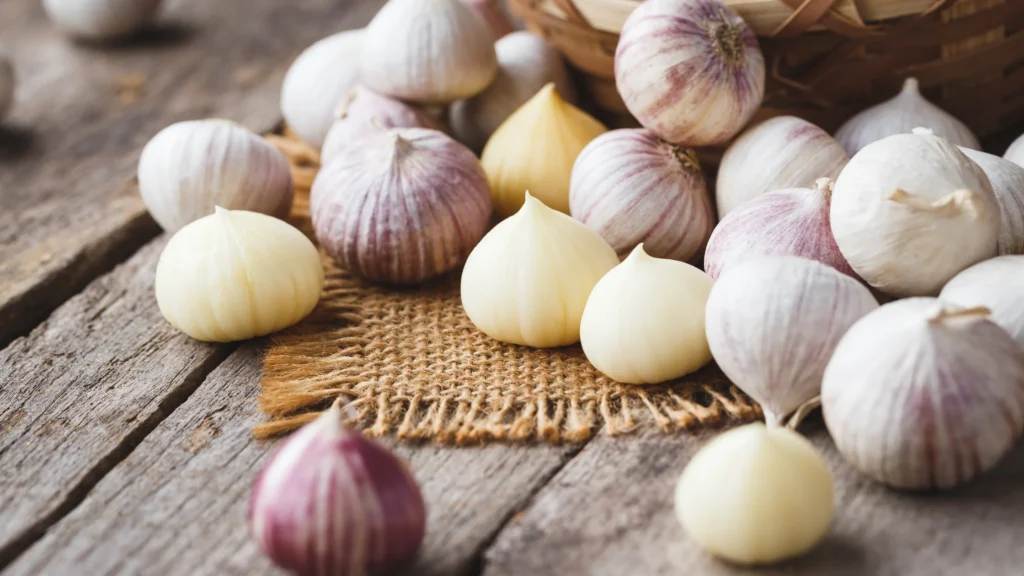
Welcome to M Talki. What the benefits of Garlic and how too use it for weight loss and for good health in daily routine. For more information read below.
For thousands of years, before this spice was used to flavor your favorite dishes, it was employed as a medical treatment in ancient cultures. The health benefits of garlic were used by Chinese, Egyptian, and Roman civilizations. There is substantial documentation of their usage of garlic for its medicinal properties.
Why Is Garlic Healthy For You?

Though it was not widely known, experts now understand that sulfur compounds in garlic are the primary cause of its beneficial effects on health.
By sclincin, chopping, or crushing garlic bulbs, the thio-Sulfinite chemicals in them are converted into allicin. Allicin is a fantastic substance. However, while this appears to be true in theory, what are the actual health benefits of using garlic?
Garlic Helps Boost Your Body’s Immune System
Your body’s immunity is what keeps it from getting sick in the first place, and it also aids in the fight against illness when the situation calls for it. Garlic offers an immune system boost to help prevent colds and the flu virus.
Children get six to eight colds each year, while adults get two to four. Eating raw garlic can protect against cough, fever, and cold illnesses.
Eating two chopped garlic cloves every day is the best way to benefit. In some households around the world, families hang garlic cloves on a string around their children’s’ necks to help them with congestion.
It’s nutrient-dense

Garlic offers bang for your buck in the nutrient department: It provides an impressive number and amount of nutrients relative to its low-calorie count, making it a nutrient-dense (read: very healthy!) ingredient. By consuming garlic, you’ll treat your body to some key nutrients such as manganese, vitamin B6, zinc, sulfur, iron, vitamin C, potassium, calcium, magnesium, selenium, and more.
It helps reduce your risk for heart disease
Substantial research has found that garlic plays a role in reducing the risk of cardiovascular diseases like heart attack and stroke, namely by lowering high blood pressure and regulating cholesterol levels (including lowering LDL, or “bad,” cholesterol).
The aromatic contains allicin, for example, a cardioprotective, sulfur-containing compound released when raw garlic is chewed, chopped, or crushed, and responsible for garlic’s signature aroma and flavor. In addition to its numerous other medicinal properties, allicin’s cholesterol- and blood pressure-reducing effects are beneficial to the cardiovascular system.
Garlic Can Help With Prevention of Cancer

Garlic’s health benefits do not end with the heart. So here is another reason why your body can benefit from an extra dose of this onion family member.
According to research, consuming fresh garlic can help lessen the risk of colon cancer. According to the Iowa Women’s Health Study, women who ate garlic regularly with other vegetables and fruits had a 35% lower chance of getting colon cancer. However, researchers agree that more studies are still needed in this area.
Garlic Provides a Host of Antioxidants
Garlic’s nutrients and plant compounds give it “strong antioxidant properties,” per a research review. Not only do antioxidants benefit blood vessels and reduce inflammation, but they may soak up the damaging free radicals that can lead to diseases like cancer (though this anticancer potential needs to be borne out in human research, says the American Institute for Cancer Research.
Garlic Makes Other Healthy Foods Taste Great
Brazilian includes garlic in the same category of food as onions, herbs, and spices, adding that “garlic brings great flavor to foods, so it helps us eat more of the foods that we’re supposed to be eating more of, like vegetables, whole grains, lean proteins, and beans.”
Adding flavor through garlic can also potentially help you reduce the need for excess salt on your foods — and for just 4 calories per clove, according to the U.S Department of Agriculture.
And finally, don’t discount the role that taste plays in your overall diet: “When we love the food we eat and learn to listen to our cues for satiety, it can be more satisfying, too,” Brazilian says.
